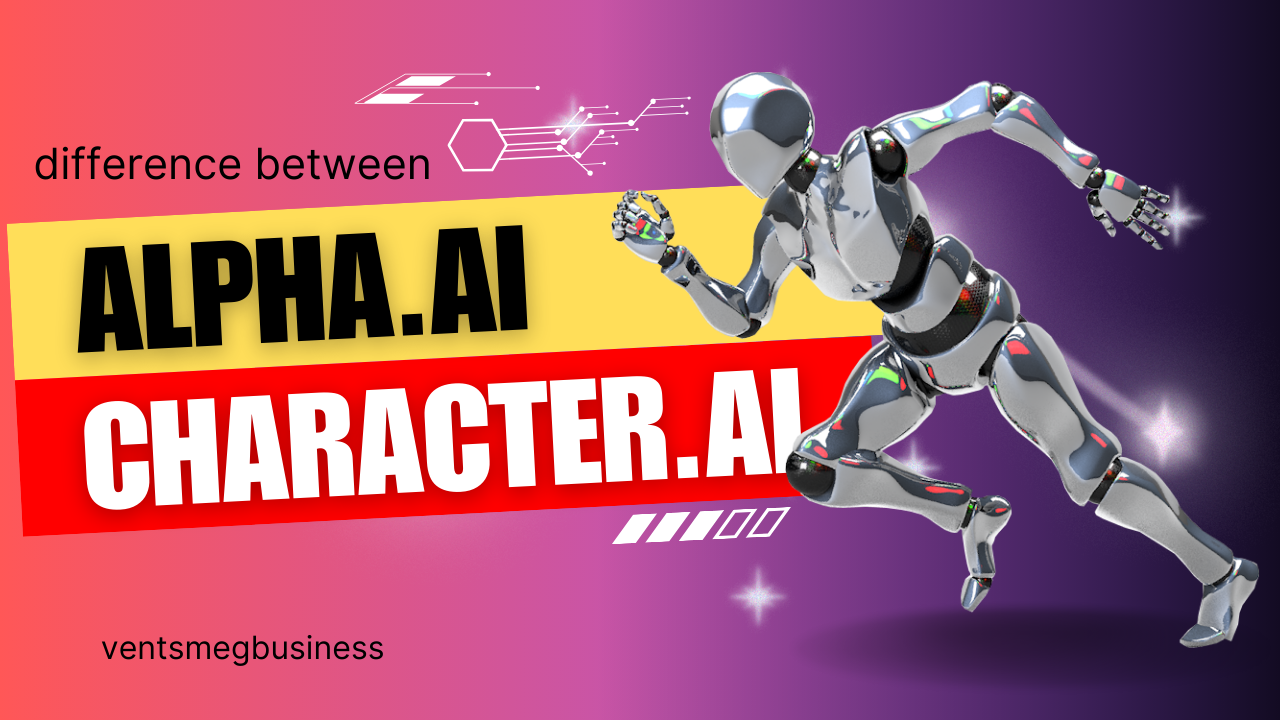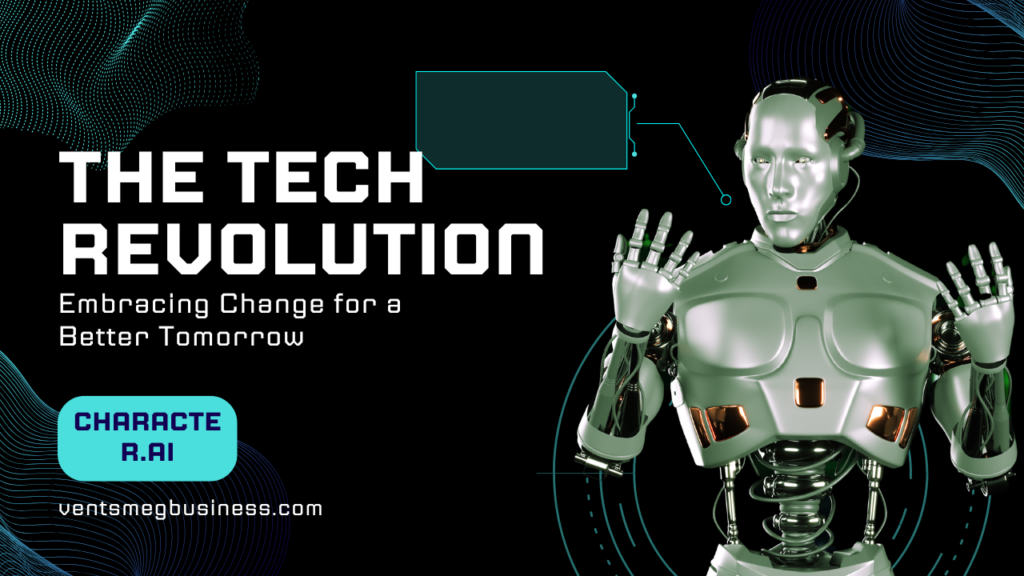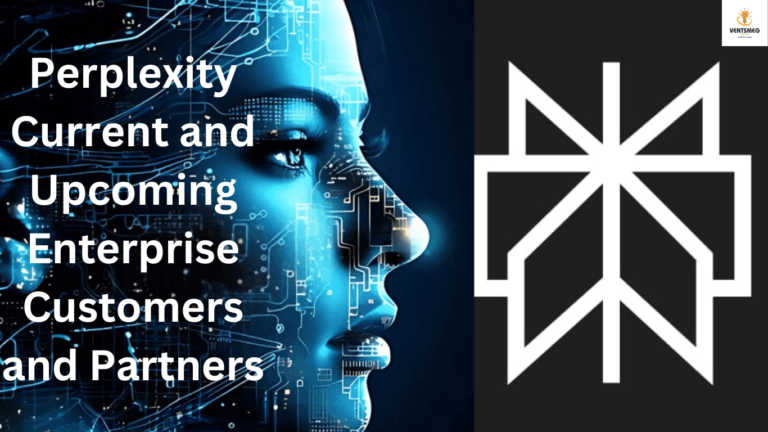
Have you ever visualized of talking with your favourite imaginary characters or historical figures? What if AI could carry them to life, letting you to involve in expressive talks? Enter the mesmerizing world of Character.AI and Aleph AI, two revolutionary technologies that are transforming the way we relate with artificial intelligence.
In an age where AI is rapidly developing, these platforms stand out by offering unique, modified skills that blur the lines between reality and imagination. But what sets them separately from other AI chatbots? How do they work, and what potential do they hold for the future? As we dive into the details of Character.AI and Aleph AI, we’ll reveal the technological marvels behind these systems, explore their different applications, and inspect the ethical concerns that come with such advanced AI interactions.
Join us on this exciting journey as we compare these two innovative platforms, learn into their performance and user experiences, and risk on their future developments. From understanding the core technologies to discovering real-world use cases, we’ll undo the mysteries behind Character.AI and Aleph AI, and discover how they’re affecting the future of human-AI interaction.

Understanding Character.AI and Aleph AI
What is Character.AI?
Character.AI is an innovative AI platform that allows users to create and interact with AI-powered characters. This technology leverages advanced language models to generate human-like conversations and responses. Users can engage with pre-existing characters or create their own, making it a versatile tool for entertainment, education, and creative writing.
Introducing Aleph AI
Aleph AI, on the other hand, is a cutting-edge AI research company focused on developing advanced artificial intelligence systems. Their primary goal is to create more sophisticated and capable AI models that can understand and process complex information across various domains.
Key differences between the two platforms
To better understand the distinctions between Character.AI and Aleph AI, let’s compare their key features:
| Feature | Character.AI | Aleph AI |
| Primary Focus | Interactive AI characters | Advanced AI research |
| User Interaction | Direct conversation with AI | Research-oriented |
| Customization | Users can create characters | Focuses on model development |
| Application | Entertainment, education, writing | Scientific and industrial applications |
While both platforms utilize AI technology, their approaches and target audiences differ significantly:
- Character.AI emphasizes user engagement and creativity
- Aleph AI concentrates on pushing the boundaries of AI capabilities
As we delve deeper into these platforms, we’ll explore the specific technologies that power Character.AI’s interactive experiences and how they compare to Aleph AI’s innovative research approaches.
Exploring Character.AI’s Technology
Character.AI’s technology is at the forefront of conversational AI, leveraging advanced natural language processing and machine learning techniques to create immersive and interactive experiences. Let’s delve into the key components that make this platform stand out.
Natural Language Processing Capabilities
Character.AI employs state-of-the-art NLP models to understand and generate human-like text. These models are capable of:
- Contextual understanding
- Sentiment analysis
- Multi-language support
- Semantic parsing
Character Creation and Customization
One of Character.AI’s unique features is its ability to create and customize AI characters. This process involves:
- Defining personality traits
- Setting knowledge bases
- Establishing behavioral patterns
- Fine-tuning language styles
User Interaction and Conversation Flow
The platform excels in maintaining engaging conversations through:
- Dynamic response generation
- Context retention
- Topic transition management
- Emotional intelligence
Machine Learning and Adaptation
Character.AI’s technology continuously evolves through:
| Aspect | Description |
| Feedback loop | Incorporates user interactions to improve responses |
| Transfer learning | Applies knowledge from one domain to another |
| Personalization | Tailors experiences based on individual user preferences |
| Continuous training | Updates models with new data to stay current |
This adaptive approach ensures that characters become more refined and realistic over time, enhancing the overall user experience. As we move forward, we’ll explore how Aleph AI’s technological innovations compare to Character.AI’s offerings.
Aleph AI’s Technological Innovations
Aleph AI has made significant strides in pushing the boundaries of artificial intelligence, particularly in the realm of language models and multi-modal AI integration. Their innovative approach has set them apart in the competitive landscape of AI technology.
Advanced Language Models
Aleph AI’s advanced language models represent a leap forward in natural language processing. These models are designed to understand and generate human-like text with unprecedented accuracy and nuance. Some key features include:
- Contextual understanding
- Multilingual capabilities
- Sentiment analysis
- Improved coherence in long-form content
| Feature | Benefit |
| Contextual understanding | More accurate responses |
| Multilingual capabilities | Global accessibility |
| Sentiment analysis | Enhanced emotional intelligence |
| Improved coherence | Better long-form content generation |
Multi-modal AI Integration
One of Aleph AI’s most impressive innovations is its seamless integration of multiple AI modalities. This approach allows for:
- Text-to-image generation
- Voice recognition and synthesis
- Visual content analysis
- Cross-modal learning and inference
By combining these modalities, Aleph AI creates a more holistic and versatile AI system capable of handling complex, real-world tasks that require multiple forms of input and output.
Scalability and Performance Optimization
Aleph AI has made significant advancements in optimizing their AI models for scalability and performance. This includes:
- Efficient distributed computing architectures
- Novel compression techniques for model deployment
- Adaptive resource allocation based on task complexity
- Real-time performance monitoring and adjustment
These innovations ensure that Aleph AI’s technology can be deployed across a wide range of applications, from small-scale personal devices to large enterprise systems, without compromising on speed or accuracy.
Applications and Use Cases
As we delve into the practical applications of Character.AI and Aleph AI, it’s clear that these technologies are revolutionizing various industries. Let’s explore some key areas where these AI platforms are making significant impacts.
A. Entertainment and Gaming
Character.AI and Aleph AI are transforming the gaming landscape by creating more immersive and interactive experiences. These technologies enable:
- Dynamic NPCs (Non-Player Characters) with realistic personalities
- Adaptive storylines that respond to player choices
- Personalized gaming experiences tailored to individual preferences
| Feature | Character.AI | Aleph AI |
| NPC Interaction | Advanced dialogue systems | Emotion-driven responses |
| Story Generation | Branching narratives | Procedurally generated worlds |
| Player Adaptation | Learning from play style | Real-time difficulty adjustment |
B. Virtual Assistants and Customer Service
Both platforms are enhancing customer support and virtual assistance:
- 24/7 availability with human-like interactions
- Multilingual support for global customer bases
- Personalized recommendations based on user history
C. Education and Training
In the educational sector, these AI technologies offer:
- Adaptive learning programs
- Virtual tutors for one-on-one instruction
- Simulations for practical training in various fields
D. Research and Development
Scientists and researchers are leveraging these AI systems for:
- Data analysis and pattern recognition
- Hypothesis generation in complex scientific domains
- Collaborative problem-solving with AI-powered insights
E. Creative Writing and Storytelling
Authors and content creators are exploring new frontiers with:
- AI-assisted plot development
- Character creation and dialogue generation
- Interactive storytelling experiences
With these different applications, Character.AI and Aleph AI are not just technological marvels but practical tools reshaping multiple industries. As we look ahead, it’s crucial to consider how these technologies compare in performance and user experience.
Comparing Performance and User Experience
Now that we’ve explored the applications of Character.AI and Aleph AI, let’s dive into how these two platforms stack up against each other in terms of performance and user experience.
A. Conversation quality and coherence
Both Character.AI and Aleph AI excel in providing high-quality conversations, but they have distinct strengths:
| Feature | Character.AI | Aleph AI |
| Persona consistency | Exceptional | Very good |
| Context retention | Good | Excellent |
| Creativity | High | Moderate |
Character.AI shines in maintaining consistent personas, while Aleph AI excels in retaining context throughout longer conversations.
B. Response time and latency
Response time is crucial for a seamless user experience. Here’s how they compare:
- Character.AI: Generally quick responses, with occasional delays during peak usage
- Aleph AI: Consistently fast response times, even under high load
C. Customization options
Both platforms offer customization, but to different degrees:
- Character.AI:
- Extensive character creation tools
- Community-shared characters
- Limited fine-tuning options
- Aleph AI:
- Focused on business-specific customizations
- Advanced fine-tuning capabilities
- Fewer pre-built characters
D. User interface and accessibility
The user experience differs significantly between the two platforms:
- Character.AI: Intuitive, chat-like interface suitable for casual users
- Aleph AI: More complex UI, geared towards developers and businesses
Both Character.AI and Aleph AI offer unique strengths in performance and user experience. While Character.AI provides a more accessible and creative environment, Aleph AI focuses on robust, business-oriented solutions. Next, we’ll examine the ethical considerations and challenges these AI technologies face.
Ethical Considerations and Challenges
As we delve deeper into the world of AI technologies like Character.AI and Aleph AI, it’s crucial to address the ethical implications and challenges that arise. These considerations are paramount in shaping responsible AI development and usage.
Data Privacy and Security
Data privacy and security are at the forefront of ethical concerns in AI. Both Character.AI and Aleph AI must prioritize:
- Robust encryption methods
- Secure data storage practices
- Transparent data usage policies
| Aspect | Importance | Potential Solutions |
| User data protection | High | End-to-end encryption |
| Consent management | Critical | Opt-in policies, clear terms of service |
| Data retention | Moderate | Limited storage duration, data anonymization |
Bias Mitigation in AI Models
Addressing bias in AI models is essential for fair and equitable AI systems. Strategies include:
- Diverse training data sets
- Regular audits for bias detection
- Collaborative development with diverse teams
Responsible AI Development Practices
Responsible AI development encompasses:
- Adherence to ethical guidelines
- Transparency in AI decision-making processes
- Continuous monitoring and improvement of AI systems
Potential Misuse and Safeguards
To prevent misuse, companies must implement:
- User verification systems
- Content moderation tools
- Clear guidelines for acceptable use
As we move forward, it’s crucial to balance innovation with ethical considerations, ensuring that AI technologies like Character.AI and Aleph AI contribute positively to society while minimizing potential harm.
Future Developments and Potential Impact
Upcoming Features and Improvements
As Character.AI and Aleph AI continue to evolve, we can expect exciting advancements in their capabilities. Both platforms are likely to focus on:
- Enhanced natural language processing
- Improved context understanding
- More diverse and specialized AI characters
These improvements will lead to more engaging and realistic conversations, making AI interactions increasingly indistinguishable from human communication.
Integration with Other Technologies
The integration of Character.AI and Aleph AI with other emerging technologies promises to revolutionize various fields:
| Technology | Potential Integration |
| Virtual Reality | Immersive AI-driven experiences |
| Internet of Things | Smart home assistants with personality |
| Augmented Reality | AI characters in real-world environments |
| Blockchain | Secure and verifiable AI interactions |
Potential Disruptions in Various Industries
The advancements in AI technology, particularly in Character.AI and Aleph AI, are set to disrupt multiple industries:
- Education: Personalized AI tutors
- Entertainment: Interactive storytelling and game characters
- Customer Service: Highly empathetic AI representatives
- Mental Health: AI-powered therapy assistants
These disruptions will likely lead to increased efficiency, personalization, and accessibility across various sectors.
Long-term Implications for Human-AI Interaction
As Character.AI and Aleph AI tech continue to advance, we can anticipate profound changes in how humans interact with AI:
- Deeper emotional connections with AI entities
- Blurring lines between human and AI communication
- Ethical considerations regarding AI relationships
- Potential shifts in social dynamics and interpersonal skills
These developments will undoubtedly spark discussions about the nature of consciousness, empathy, and the role of AI in our daily lives.
Final thoughts
Character.AI and Aleph AI represent cutting-edge advancements in artificial intelligence, each offering unique technological innovations that are reshaping the landscape of AI-driven interactions. From Character.AI’s focus on creating lifelike conversational agents to Aleph AI’s breakthroughs in natural language processing, these platforms demonstrate the vast potential of AI in various applications, from entertainment to education and beyond.
As we look to the future, it’s clear that Character.AI and Aleph AI will continue to play significant roles in shaping AI technology. While ethical considerations and challenges remain at the forefront, the potential impact of these technologies on our daily lives and industries is immense. It’s crucial for users, developers, and policymakers to stay informed and engaged in the ongoing dialogue surrounding AI development to ensure its responsible and beneficial integration into society.






One Comment